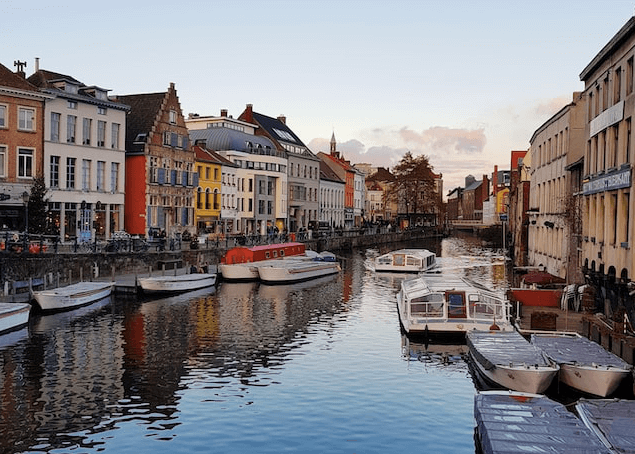From Monday August 22nd, recreational boating are no longer be allowed on waterways with little or no commercial traffic, the agency that manages Flanders’ waterways (De Vlaamse Waterweg) announced on Friday 19th. According to Belga news agency, this is a result of the lowering water levels in the region, which has already caused issues for commercial boats.
Leisure boats will only be allowed to pass through locks there there is traffic of commercial vessels. Navigation of leisure boats will be prohibited on the Dender upstream of Aalst and on the Ypres-Yser canal. In Ghent, this decision concerns several locks.
The smaller canals with no commercial traffic will not be locked
Liliane Stinissen, Flemish Waterways spokesperson
The decision was taken after the meeting of the Drought Committee last week, and became effective on Monday August 22nd. Recreational boats were still be able to pass through the locks until Sunday 21st to reach their home port if necessary and under the restrictions already in place.
This measure was motivated by the drought, the persistent heat of this summer and a dry spring that made the flow of Flemish waterways very low. The rainfall of the last few days and the expected rainfall will not be enough to restore the water resources, according to the manager.
“At the end of the Drought Committee, we have decided that pleasure boats will only be able to pass through the locks with commercial navigation. Depending on where the commercial traffic is, this will have an impact,” said Liliane Stinissen, spokesperson for the Flemish Waterways. “Smaller canals, where there is no commercial traffic, will not be blocked.”
Belga news agency reports that long waiting times are expected on the Bocholt-Herentals Canal, Dessel-Turnhout-Schoten Canal, South Willem’s Canal, Briegden-Neerharen Canal, Dijle Canal, Plassendale-Nieuwpoort Canal, Ijzer Canal, Dender (Aalst lock), Leuven-Dijle Canal and the Charleroi Canal.
From September on, stricter measures are being considered to reduce water consumption in Flanders. A consultation has already been started with the sectors (agriculture, industry, construction) on what they could save. This commission brings together water managers, drinking water companies, Aquafin (wastewater treatment) and the provincial governors.
The Drought Commission continues to reiterate its advice to sectors, governments and citizens to “minimize” their water consumption.













